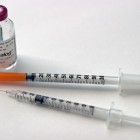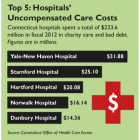Veterans' Health
Yale Study: Clinicians Often Overlook Veterans’ Mental Health Disorders
|
Nationally, at least one in five military veterans who experience trauma are at a heightened risk for depression, suicide or substance abuse but are often overlooked in clinical settings because they don’t fit the criteria for post-traumatic stress disorder (PTSD), according to a Yale University-led study. The research, published June 1 in the World Psychiatry journal, examined sub-threshold PTSD, which occurs when someone experiences trauma-related symptoms that aren’t severe or long-lasting enough to warrant a PTSD diagnosis. The study, which included 1,484 veterans nationwide, found 8 percent were diagnosed with PTSD but more than 22 percent met criteria for sub-threshold PTSD. Also, in addition to 4.5 percent of veterans diagnosed with PTSD within the last month, 13 percent had sub-threshold symptoms, the study reported. Veterans with sub-threshold PTSD had a 20 percent chance of suffering from major depression in their lifetimes, compared with about 4 percent of veterans without sub-threshold symptoms, the study found.



